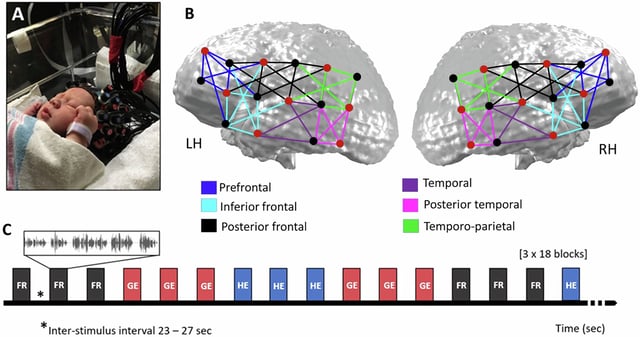Overview
- In a Communications Biology study, 60 native-French participants played recorded stories in French plus German or Hebrew from week 35 of pregnancy, averaging about 25 sessions.
- Within 10 to 78 hours after birth, fNIRS scans showed left-hemisphere language-region activation not only for French but also for the foreign language heard in utero.
- An unfamiliar language elicited weaker, non-lateralized brain activity, pointing to specificity tied to prenatal exposure.
- Even brief daily listening over a few weeks was sufficient to modulate newborn brain responses, with a single trilingual reader used to avoid voice bias.
- Researchers emphasize this reflects prenatal familiarity rather than language learning and are conducting follow-ups to assess durability and any clinical implications.

